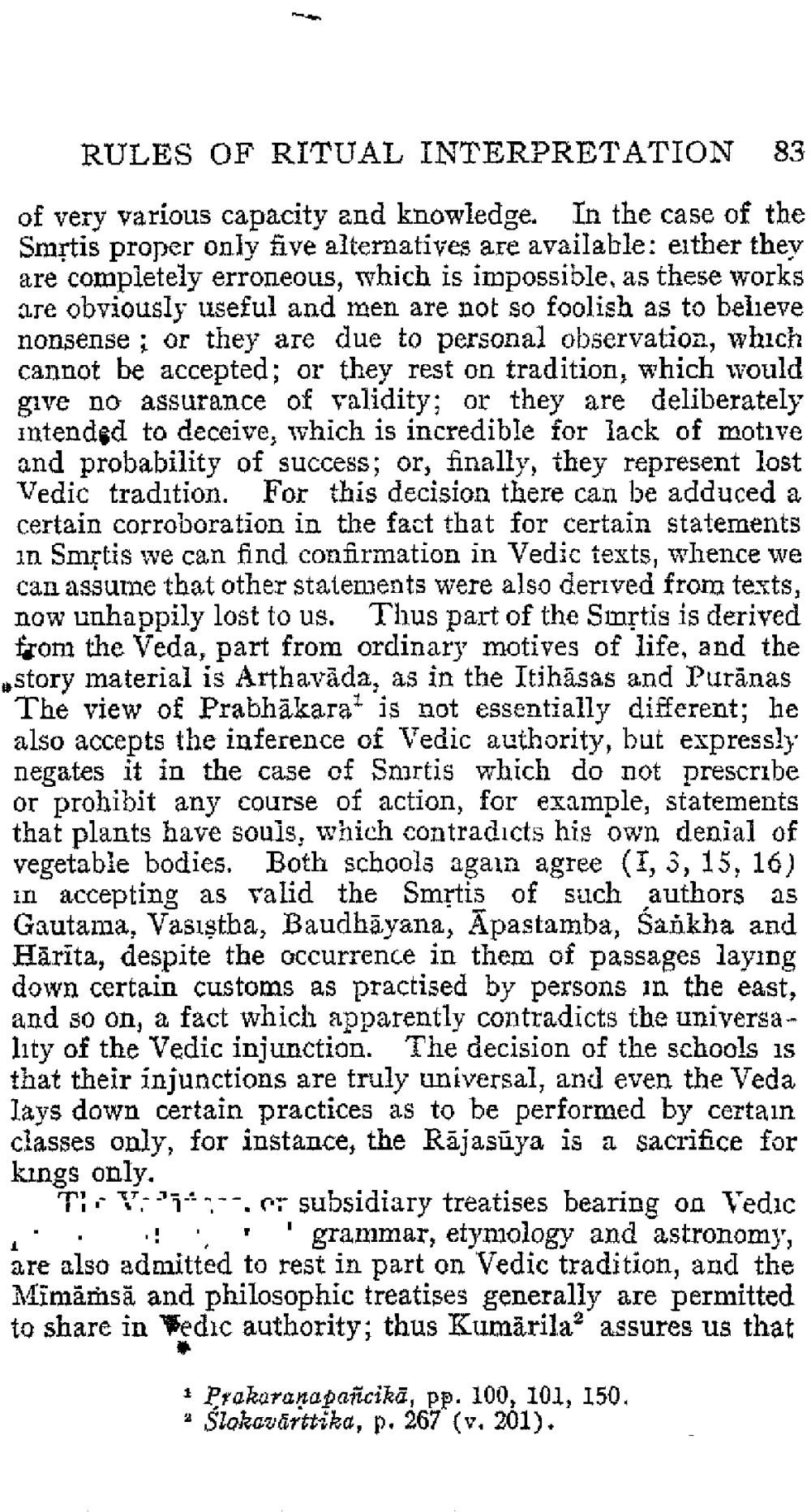________________
RULES OF RITUAL INTERPRETATION 83
of very various capacity and knowledge. In the case of the Smstis proper only five alternatives are available: either they are completely erroneous, which is impossible, as these works ase obviously useful and men are not so foolish as to believe nonsense ; or they are due to personal observation, which cannot be accepted; or they rest on tradition, which would give no assurance of validity; or they are deliberately intended to deceive, which is incredible for lack of motive and probability of success; or, finally, they represent lost Vedic tradition. For this decision there can be adduced a certain corroboration in the fact that for certain statements in Smštis we can find confirmation in Vedic texts, whence we can assume that other statements were also derived from texts, now unhappily lost to us. Thus part of the Sirtis is derived from the Veda, part from ordinary motives of life, and the story material is Arthavada, as in the Itihāsas and Purānas The view of Prabhākarat is not essentially different; he also accepts the inference of Vedic authority, but expressly negates it in the case of Snirtis which do not prescribe or prohibit any course of action, for example, statements that plants have souls, which contradicts his own denial of vegetable bodies. Both schools again agree (I, 3, 15. 16) in accepting as valid the Smrtis of such authors as Gautama, Vasıstba, Baudhāyana, Apastamba, Sankha and Hārīta, despite the occurrence in them of passages laying down certain customs as practised by persons in the east, and so on, a fact which apparently contradicts the universa - lity of the Vedic injunction. The decision of the schools is that their injunctions are truly universal, and even the Veda lays down certain practices as to be performed by certain classes only, for instance, the Rājasūya is a sacrifice for kings only.
T:-1:-7--.cr subsidiary treatises bearing on Vedic , , ! ' ' grammar, etymology and astronomy, are also admitted to rest in part on Vedic tradition, and the Mīmāṁsă and philosophic treatises generally are permitted to share in Vedic authority; thus Kumarila? assures us that
1 Prakoranapascikā, pp. 100, 101, 150.
Slokovarttika, p. 267 (v. 201).




